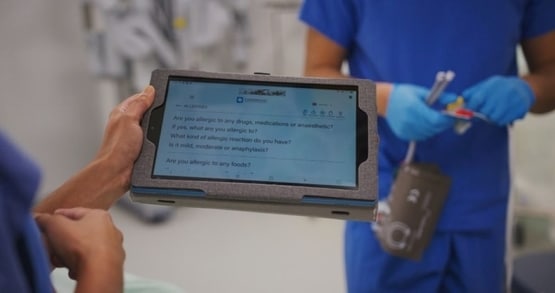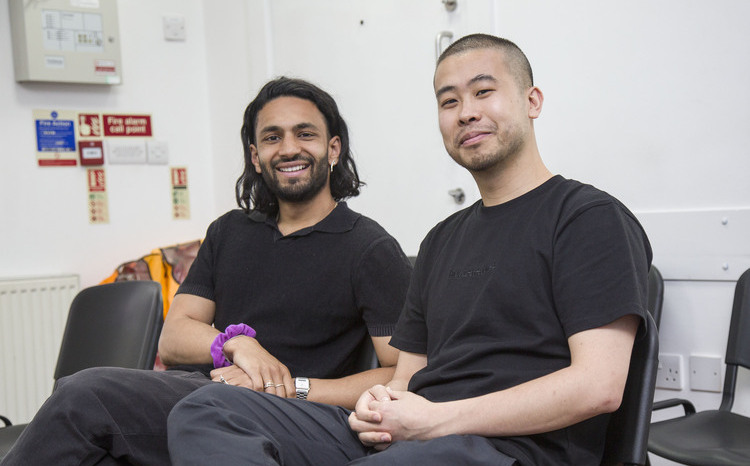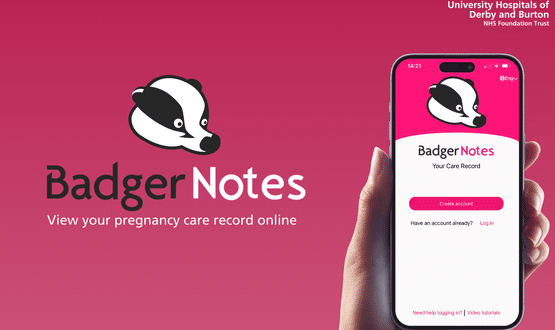Sussex midwives pioneer app to overcome language barriers

Midwives at University Hospitals Sussex NHS Foundation Trust are supporting non-English speaking expecting parents by using a web-based communications app in their specialised antenatal classes.
The trust has become the first in the south of England to offer Alternative Language Antenatal Classes (ALAC), for parents-to-be for whom English is not their first language. It joins just a handful of trusts who offer ALAC support.
The classes have now adopted the use of our 2022 Rewired Pitchfest winner, CardMedic – an app which offers digital flashcards to guide patients through common clinical interactions. Use of the app is helping to reduce health inequalities and minimise the pressure for interpreters to be available immediately.
Maggie Myatt, race equity lead and senior midwife at University Hospitals Sussex, said: “From a midwifery perspective, it’s an incredibly innovative and useful communication tool. Crucially, it builds bridges of communication and enables human contact, which is essential in a service as intimate as obstetrics and maternity.”
The app can be used during scans and routine appointments, as well as in hospital during labour and birth. It can also be used if the patient requires emergency antenatal monitoring and care. CardMedic enables care team to discuss clinical options immediately and directly, without needing someone to translate such as a professional interpreter or family member.
Myatt explained: “A typical scenario is where a pregnant woman or their partner may call triage at 3am because their waters have broken.
“While the midwife is calling an interpreter, the (patient) can use CardMedic on their phone or iPad to start communicating straight away. That helps with clinical safety and healthcare efficiency, as well as the quality of patient experience, because we don’t have to wait to begin their care.”
Medical staff at University Hospitals Sussex and patients trained in the use of the app can simply select the topic they need and choose from nearly 20 languages to work with. It includes questions and explanations that are developed by clinical professionals or there is the option to add free text.
As well as offering multiple languages, the app can also convert to sign language videos, easy read, or read-aloud mode and also offers an integrated speech-to-text translation tool.
Peggy Osborne, who set up the classes in Sussex along with Myatt, said: “It’s a terrible thought that women might be excluded from antenatal education due to speaking a different language, and then they might not know what’s normal, or not, during labour.”
The use of CardMedic at the Sussex trust is the first in the UK to support maternity in this way.




